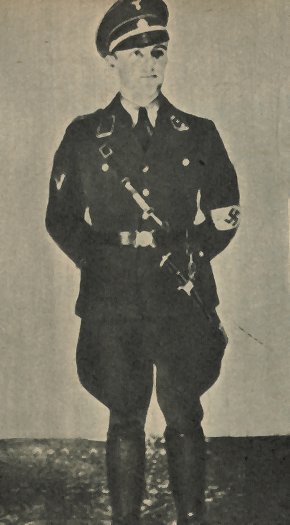
November 20

0868 Death: St Edmund, Saxon king of East Anglia; shot with arrows and beheaded by Vikings. (Bradley)
1272 Edward I is proclaimed King of England.
1780 Britain declares war on Holland.
1789 New Jersey becomes the first state to ratify the Bill of Rights.

1851 Birth: John Merle Coulter, botanist.

1866 The first rotary-crank bicycle, known as the 'bone shaker,' is patented by Frenchman Pierre Lallemont in Paris.


1906 Charles Stewart Rolls and Frederick Henry Royce get together to form their car-building company.
1914 Photos become a requirement for people who request passports from the US State Department.

1917 WW1: A preliminary armistice is signed between Germany and Russia. Note: According to Russian historian Yuri Polyakov, who also stated the Allies never replied to the Soviet peace proposal of November 8.
1919 The first municipally owned airport in America opens in Tucson, Arizona.



1935 The Church of England unanimously condemns Nazi persecution of Jews in Germany.

1940 WW2: Antonescu and Sturdza arrive in Berlin.
1940 WW2: Hungarian Prime Minister Count Teleki and Foreign Minister Csaky in Vienna agree to bring Hungary into the Tripartite Pact.


1943 WW2: A force of 5,000 US Marines lands on Tarawa in the Gilbert Islands. Fighting is ferocious and casualties high.
1944 WW2: Hitler leaves the Wolf's Lair and travels to his headquarters near Bad Nauheim.

1944 WW2: London lights up as the blackout is lifted for the first time in five years.

1947 Princess Elizabeth, who will be Queen in four years, weds Lieutenant Philip Mountbatten.
1951 Diary of Leon Gladun: Finally we set off for that Canada. The Canberra an 11,000 ton ship. The crew almost all Germans. The passengers are a gathering of all nationalities. The [...] dominates. The cabins aren't too wonderful. Janka and Jacek are placed in cabin 373 where there are 3 women with children. I'm in cabin 361.
1963 President John F. Kennedy makes two related phone calls this day. Kennedy to Michael Forrestal: "I want you to organize an in-depth study of every possible option we've got in Vietnam, including how to get out of there. We have to review this whole thing from the bottom to the top." Kennedy to George Ball: "I'll get back from Texas Sunday. Come out to Camp David. Cabot Lodge will be there and we can go over these things."

1975 Ronald Reagan announces his candidacy for the 1976 Republican presidential nomination; a race he will lose to incumbent Gerald Ford, who will lose to Democrat Jimmy Carter.
1982 President Reagan announces that US Marines will be deployed in Lebanon to assist in the evacuation of PLO fighters.
1983 Ling Jinxian wins the Best Cook in China award, with a menu including bear's paw and sea slug.

1990 British Prime Minister Margaret Thatcher fails to win a 65-percent majority in a Conservative Party vote, forcing a runoff against Michael Heseltine.
1991 The United States provides $1.5 billion in food and technical assistance to the Soviet Union, about half of what had been requested.

2001 At a conference in Washington, attended by 21 countries to discuss the reconstruction of Afghanistan, Colin Powell declares, "We are going to have an enormous obligation ... to not leave the Afghan people in the lurch, and not walk away as has been done in the past."
2001 US bombers continue to strike the Taliban stronghold of Kandahar, and the Northern Alliance gives the Taliban three days to surrender in Konduz or face a military assault.


2001 An elderly Connecticut women is hospitalized with inhalation anthrax.
2001

2002

2003

2003

2004

2004

2004

2004

2004

Visit:




 Visit:
Visit:

Click Here to email the History: One Day At a Time webmaster.